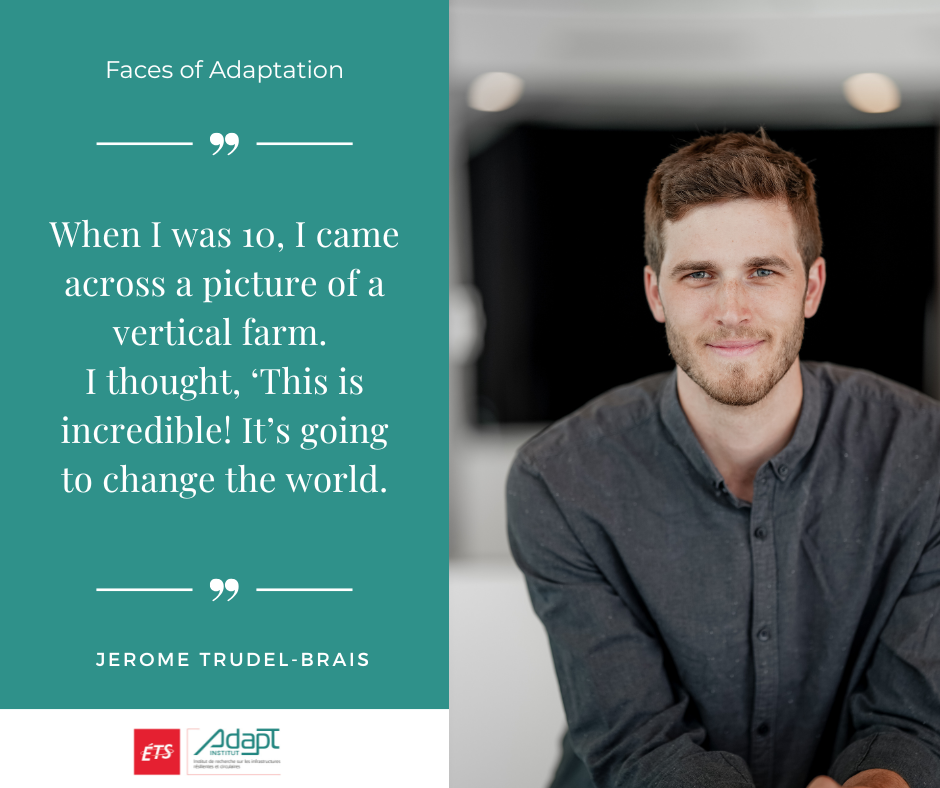Energy Efficiency in Vertical Farms

Jérôme Trudel-Brais, a PhD student at ÉTS, received a $20,000 scholarship from the Institute for Research on Resilient and Circular Infrastructure (AdapT) for his project on the energy performance of indoor plant production systems. Spotlight on his research, in five questions.
What is the core focus of your project?
The main focus is on LED lights used in horticultural production within vertical farms. It’s a new area of innovation in controlled-environment agriculture, since these lights are more efficient. In addition to reducing electricity consumption, they also allow for better control of light wavelengths to optimize plant growth. These lights also generate heat, which affects the temperature inside the growth chamber. We want to characterize that heat load in order to better size our heating, ventilation, and air conditioning (HVAC) systems and minimize the energy required.
How do you plan to achieve that goal?
The first step will be to propose and define indicators to quantify the energy performance of indoor farms. Then, we aim to develop a characterization system to measure the heat load from the LED lights. With that data, we’ll explore energy management strategies for indoor farms more broadly.
What drew you to controlled-environment agriculture?
When I was 10 years old, I came across a picture of a vertical farm. I thought, “This is incredible! It’s going to change the world.” That image stayed with me. During the pandemic, I had a lot of time on my hands and started doing research. I realized that controlled-environment agriculture was developing all over the world — and here in Quebec, too.
What will the AdapT scholarship allow you to do?
Many new technologies are theoretically available to help us build climate resilience, but they require a development phase to be fully effective. Economics is always the key to scaling up any new technology. Once the energy efficiency of indoor plant production systems is improved — in other words, once their electricity consumption is lowered — their profitability will also improve.
How is your project relevant to the fight against climate change?
We’re working to strengthen food security. For now, traditional agriculture remains the dominant method. But with climate change growing more extreme, phenomena like floods and droughts can threaten outdoor crops. Developing controlled-environment agriculture can help us become more resilient to these challenges. It won’t be the only solution, but it will definitely be part of the answer to ensuring future generations have access to food.
